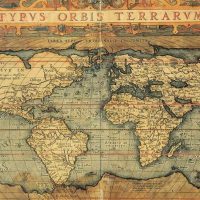Category: History Essay Examples
See our collection of history essay examples. These example essays are to help you understanding how to write a history essay. History is a fascinating puzzle with both personal and cultural significance. The past informs our lives, ideas, and expectations. Historians study the past to figure out what happened and how specific events and cultural developments affected individuals and societies. Also, see our list of history essay topics to find the one that interests you.
The Sassanid Empire was the last pre-Islamic Iranian dynasty that ruled over a large part of western Asia. Following the Achaemenid dynasty, the Sassanids are considered one of the most powerful and famous Iranian dynasties that positively influenced the evolution of Iranian nationality and culture during their 400-year …
The story of Saul is the story of how Israel received its monarchy. It is a tragic story because Saul represents the acceptance of a line of kings, yet the biblical commentary makes known that this new form of government represents a rejection of direct divine government represented …
Scribes were key to the administrative and legislative aspects of many societies after the creation of writing and fulfilled numerous functions other than simply record keeping. Very often scribes were instrumental in creating and maintaining the legal, economic, and religious aspects of a culture. In many cultures scribes …
At the end of the third and the beginning of the second millennia b.c.e. Egypt was beset by a series of invasions. Diverse groups whom the Egyptians associated with “the north” and the Mediterranean Sea carried out these invasions. The most distinguishable groups were the Denyen, Ekwesh, Lukka, …
The philosophical school of sophism, which first flourished in fifth-century b.c.e. Athens, underwent a revival in the second century c.e., and for a brief period it attained a measure of intellectual fashionableness. Although the political center of the Western world moved from Greece to Rome, the new capital …
The Seleucid Empire (312–63 b.c.e.) was the largest of the Hellenistic states that emerged from the conquests of Alexander the Great. Seleucus I (c. 358–281 b.c.e.), one of Alexander’s generals, founded the Seleucid Empire in 312. Seleucus, who took the title Nicator, or “victor,” was the most successful …
Lucius Annaeus Seneca’s father, Marcus Annaeus Seneca (Seneca the Elder, c. 55 b.c.e.–39 c.e.), was an imperial procurator. He so mastered public speaking and debate that he became an authority on rhetoric. Marcus Annaeus had two other sons besides Lucius Annaeus Seneca. The eldest was Junius Annaeus Gallio, …
Septimus Severus was founder of the African dynasty of Roman emperors. He came from a family of Roman citizens who had served as imperial bureaucrats in northern Africa. He found favor with the emperor Marcus Aurelius and served in many high provincial positions. Under Emperor Commodus, Septimus Severus …
The Servant Songs refers to a group of texts found in the biblical book of Isaiah. These passages center upon someone known as the Servant of the Lord. This person or character is commissioned by the God of the Bible to carry out a mission in relation to …
The Shang is the first truly historic Chinese dynasty (c. 1766–1122 b.c.e.). It is also called the Yin, after its last capital city, where the last 12 kings ruled c. 1395–1122 b.c.e. Traditional accounts of the Shang came under doubt until the discovery of inscribed oracle bones unearthed …
Believed to be an indigenous religion of Japan, Shintoism (or Shinto) involved the worshipping of kami and prescribed shrine rituals as a way of showing respect and devotion. The term was not in use until the 19th century. Shinto is the religious structure that provides definition and a …
A German explorer of western China and Central Asia coined the name Silk Road at the end of the 19th century. It describes a route of international commerce that linked China and Rome, exchanging many luxuries by camel caravans, most important of them China’s coveted silks. Sere, which …
The prestige of history as a field worthy of study and historical writing as an honored pursuit were strongly rooted in Chinese intellectual life from earliest antiquity. The Han dynasty had the distinction of producing the earliest and most important major historical work. It is titled the Shiji …
St. Simeon Stylites was a famous Byzantine ascetic. Many devout Christians in Byzantine society were convinced that the way to higher religious experience and demonstration of faith came through the mortification of the flesh or by depriving themselves of all earthly pleasures. These ascetics often entered monasteries or …
Judaism and Christianity regard Mount Sinai (also called Mount Horeb) as the place where their common spiritual ancestors entered into a unique and exclusive relationship with the supreme deity. The name of the ancestral group was “the children of Israel”; the name of the deity was given as …
The Six Schools are part of the Sutra Period in the development of Hinduism. Beginning in the 200s c.e. several schools wrote systematic treatises. Their speculations developed into the basic philosophical systems that were classics in modern times. Their speculations saw philosophy as something to be lived rather …
Socrates is one of the three greatest philosophers of Greek classical thought and, together with Aristotle and Plato, helped to provide the foundations of Western thought. Socrates was the first of this triumvirate, although he did not produce any written records of his beliefs. A number of issues …
The Soga became the most powerful ruling clan in the early Japanese Yamato state between the seventh and eighth centuries c.e. The origins of the Soga clan are unclear, but they claimed to be descended from the Katsuragi clan leader who survived the purge of emperor Yûryaku in …
Sogdiana was the meeting point of Asia and Central Asia before 100 b.c.e. The Sogdiana area encompassed modern-day Uzbekistan and Tajikistan and was also called Transoxiana. The use of the word Sogdiana was an attempt to distinguish surrounding Bactria from Transoxiana, and the provincial Persian terminology has persisted …
The life of Solomon enters like a fairy tale into religious and political traditions, stretching from his life to the times of Justinian I and Muhammad some 1,600 years later. Israel became a political power and military empire never again achieved in its history when Solomon presided as …


